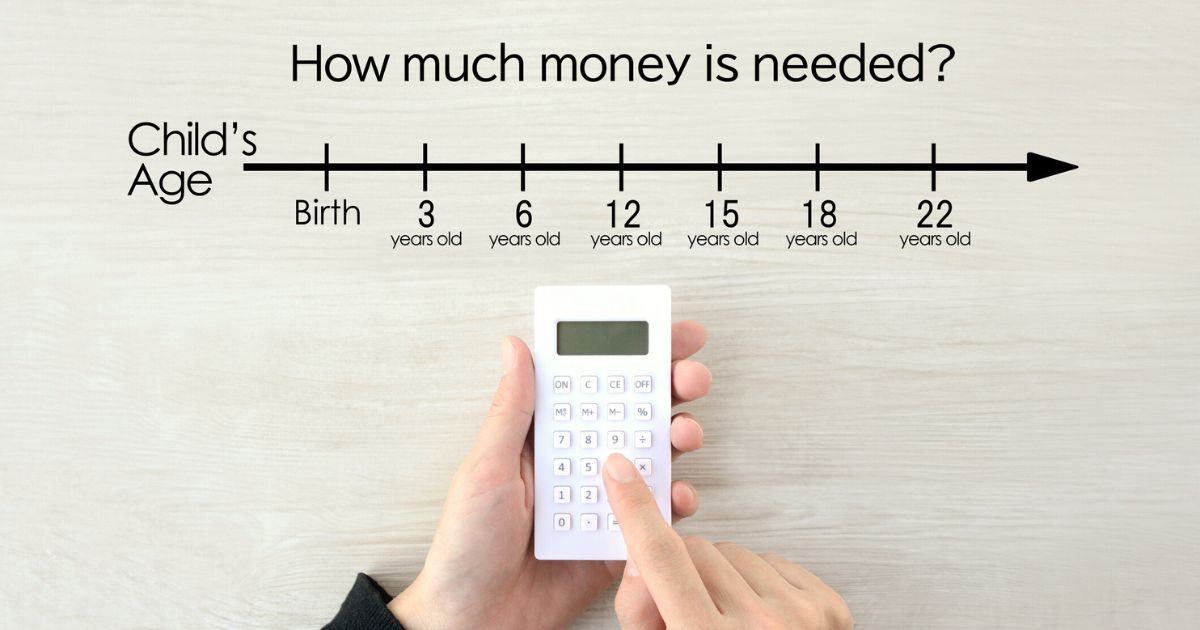Families are complicated. They can look many different ways and find themselves wrapped in varying emotions such as anger, love, and sadness, sometimes all at once. No matter what a family looks like, when two people choose to create one or add to theirs by having a child together, they link themselves together for the duration of the child’s formative years, no matter how their relationship dynamics may evolve. An important component of this link is ensuring that both parents are financially responsible for providing the child with the care and necessities they are entitled to via child support.
Reaching a child support agreement is no easy task and is often filled with many difficult conversations. This conversation is not necessarily over once child support is established; circumstances can change for either parent that requires modifications to the child support agreement. Modifying child support agreements, however, is not as easy as simply changing the amount or frequency of the payments between you and the other parent.
Here, the team at The Valley Law Group will explore the ins and outs of this system to help you navigate the legal process involved.
How Does Child Support Work?

When two people have a child and either divorce or never marry one another, the court must ensure that both parents contribute to the financial requirements necessary to support the child. A child support order is an order established by the court that requires one parent to pay the other parent the necessary funds to support that child. The court will utilize several factors to determine a child support order, including income, potential income, and costs (including a range of things like health insurance, daycare, transportation, utilities, and more). The final order will determine what amount will be paid, and to whom.
A common misconception is that the higher-earning parent will always need to pay the lower-earning parent. However, there are many considerations made before a settlement is established and becomes legally binding. Both parents’ potential to provide financial support and the amount of time the child or children spend with each parent are considered.
How Does Child Custody Impact Child Support in Arizona?
While there are several factors that determine how much a parent may have to pay in child support, there are many false assumptions made about those factors. For example, some people assume that if a parent has a higher income than the other, they will automatically be ordered to pay child support. Others assume that if the parents have equal custody of a child, then neither parent has to pay. However, these are just two of many considerations taken into account when determining who should pay child support, how much, and for how long.
For example, if you and the other parent each share equal custody and have similar incomes, then neither of you may be ordered to pay child support. However, if there is an equal share of parenting time and decision-making and one parent has a significantly higher income, then they may be ordered to pay child support. A high-earning parent with the majority of parenting time may not need to pay child support to the other parent.

Arizona calculates child support with several considerations:
- The gross income of each parent is calculated, and any qualifying deductions are applied as outlined in the Arizona Child Support Guidelines.
- The combination of both parents’ adjusted income is then compared to the Arizona Schedule of Basic Support Guidelines, which outlines the total amount of support both parents must maintain jointly.
- Additional expenses are then added for items such as necessary insurance to support the child.
- Each parent’s contribution to the total adjusted gross income is then calculated into a percentage. If, for example, the total is $10,000 and one parent contributes $6,000 of it, they are responsible for 60%.
- Using the Arizona Parenting Time Table, the amount of time each parent has will identify the percentage deducted from the total contribution each parent is individually responsible for making. It is assumed that when the child is with the parent, that parent is providing for the child.
- Finally, the court will use all of this information to create an order for support.
When Can Child Support Be Modified in Arizona?
Child support modifications are not uncommon and can be prompted for any number of reasons. Because child support is dependent on parental income, parenting time, costs for healthcare, insurance, and more, the amount needed to support the child can increase or decrease depending on the specific needs to be met and the resources available to each parent. Some of the common reasons that a child support order may need to be modified include:
- The income of one or both parents has either increased or decreased
- The parenting time awarded to each parent has either increased or decreased
- The child is covered under one parent’s health insurance and the coverage or costs of coverage has changed significantly
- The child needs to begin daycare, thus increasing costs
- A child covered under a support order decides to emancipate themselves
- One of the parents involved has another minor child while in a new relationship, whether that child is adopted or biological, requiring additional resources
What Constitutes a Continuing and Substantial Change?
Requiring a continuing and substantial change to modify a child support order eliminates the burden on the court system for those who may only request a modification on a temporary or short-term basis. However, both continuing and substantial can be subjective terms. Therefore, judges are given a broad range by which to apply the terms to the circumstances of the case before them.
An example of a temporary versus a continuing change might occur when one parent is suddenly out of work. Consider a situation in which they are unable to find employment for a few weeks. While it can be difficult to keep making payments, a few weeks does not necessarily mean there is a continuing situation that requires a modification because it is still too soon to determine whether they will be able to gain other employment quickly. If, however, they are out of work for a few months and the unemployment is not the fault of the parent, then a modification may be justifiable. In this case, a judge may deem the case meets the requirements for a continuing issue that could benefit from a modification.
A substantial change could again be a subjective decision with a broad range of applications for a judge. However, as a general rule, modifications are considered in circumstances where the changes in child support payments would be 15% or more. Returning to the previous example, if the original child support order requires one parent to pay $500 per month, and that parent then experiences a reduction in income that justifies a substantial decrease in payment, then the court may rule in favor of a modification given that the decrease is equal to or greater than 15% of the original payment.
It is important to know that a child support modification does not have to reach the 15% threshold for consideration. A judge can consider any change when determining modification needs. However, the 15% benchmark may allow some parents to seek a Simplified Procedure rather than navigating the traditional child support modification petition process.
Request to Modify Child Support in Arizona

There are two different pathways to obtaining a child support modification. It is recommended that before you decide which is right for you, you should seek the counsel of an experienced Arizona child support attorney. A skilled attorney can help you review the circumstances of your case thoroughly and make the choice that is right for you.
The two paths to modifying child support include the following:
Standard Modification
The standard modification process begins by filing a petition with the court in the county where your child lives. Upon review, the court will then schedule a hearing or a conference at which the circumstances that prompted the petition are examined and the changes assessed. If the judge finds the circumstances meet the continuous and substantial guidelines, they will consider modifying the support agreement.
Simplified Modification
If you discuss your circumstances with your attorney and the changes to the support agreement will change by a margin of 15% or more as compared to the original order, then you could petition for a simplified modification. This will often save time and money while avoiding many of the court processes. However, if the other parent wishes to schedule a hearing, they have the right to request that, even in a simplified petition.
Regardless of which route you and your attorney choose to pursue, the order must be established through the court. You cannot simply reach a new agreement with the other parent and modify the order on your own. Your child support agreement must be established and filed in court in order for the order to be legally binding and enforceable.
Why Request a Child Support Modification or Review?
You have the right as a parent to request a review of the current order in an effort to determine if a modification is necessary. If, for example, you are the paying parent and your circumstances change such that you are no longer able to make payment, a review can speed up the modification process. This helps ensure you can not only make payments that are more fitting to your current circumstances, but it also helps ensure that your child receives the support they need for the necessities they require.
Another reason why you should begin the process quickly is that in Arizona, any approved modification will be retroactive from the time the petition was filed. If you are the paying parent, this could amount to thousands of dollars saved if the modification is approved.
There is no statute of limitations for child support modification in Arizona. Modifications occur anytime there is a substantial need for a modification to occur, and either parent can initiate a review.
How Do I Take Someone Off Child Support in Arizona?
Child support modifications may include terms to end payments altogether. That’s because, in addition to the aforementioned reasons for a modification, there are circumstances that could justify terminating child support payments. Many child support orders contain termination dates within the agreement. However, they are not always included, and a parent may wish to have a review of their order to seek termination. Because child support is often paid through income withholding orders, modifications and terminations can help the paying parent invest their money into other areas of their life.
The majority of child support orders will end when the child reaches the age of 18 and has graduated from high school. Other reasons that may require the court to terminate child custody include:
- The parents have committed to each other once again by remarrying
- There are no past-due support payments to be made, and the child has been legally adopted
- The case for child support has been dismissed
- The Legal Decision Making order has been modified
- The parent or the child is deceased
If both parents agree that termination is appropriate, then both must also agree to the following conditions:
- An Agreement to Stop the Income Withholding Order must be signed by both parents in the presence of a notary or at the office of the Clerk of Court.
- If any child support order involves the Department of Child Social Services, a representative from DCSS must sign the agreement as well.
- Both parents agree that the non-custodial parent has no other financial obligations under the order outstanding, or the obligations will end within 90 days of the filing.
- The parent responsible for paying support does not owe any unpaid child or spousal support payments.
In some situations, the party challenging the termination request is not the parent of the child but a representative from DCSS or another state entity who feels it is in the child’s interest to continue the order.
Contact a Child Support Modification Attorney in Arizona

If you have a current child support order and either you or your child’s other parent is interested in modifying it, contact the skilled child support attorneys at The Valley Law Group. Our team can help you find the answers you need to make the decisions that are right for you and your family. Contact our offices today.
*Editor’s Note: This article was originally published May 9, 2021 and has been updated March 6, 2024.

Jonathan Roeder, Founder/Director of Marketing of The Valley Law Group, is an Arizona native who has dedicated his life and career to the service of others. After graduating salutatorian of his high school class, Jonathan attended beautiful and prestigious Pepperdine University, where he majored in Political Science. During his tenure at Pepperdine University, his passion for helping others grew after securing a clinical position with a residential treatment center for juveniles with substance addictions. Post-graduation, Jonathan returned to Arizona and served as a residential manager for mentally and physically disabled homes.

